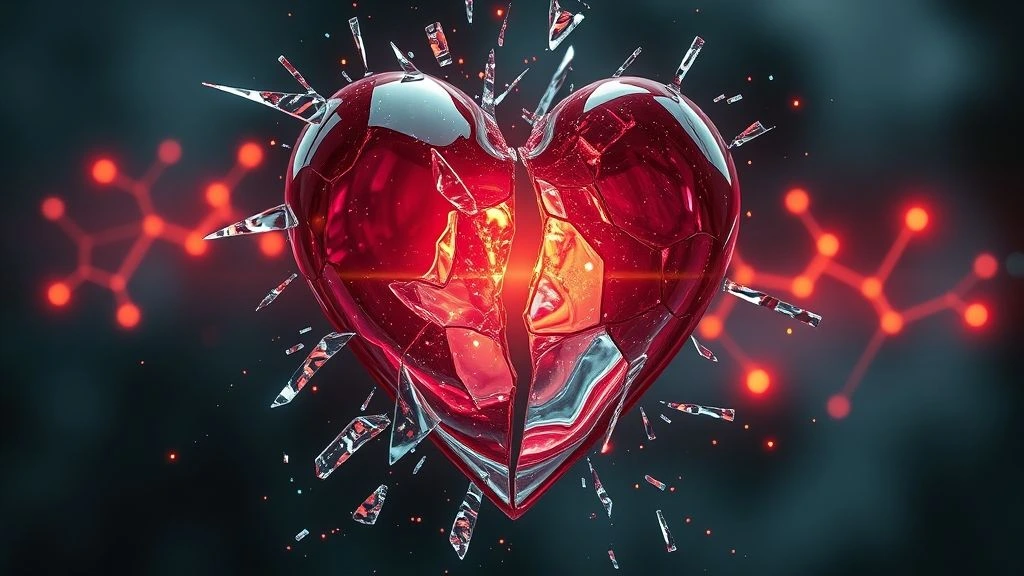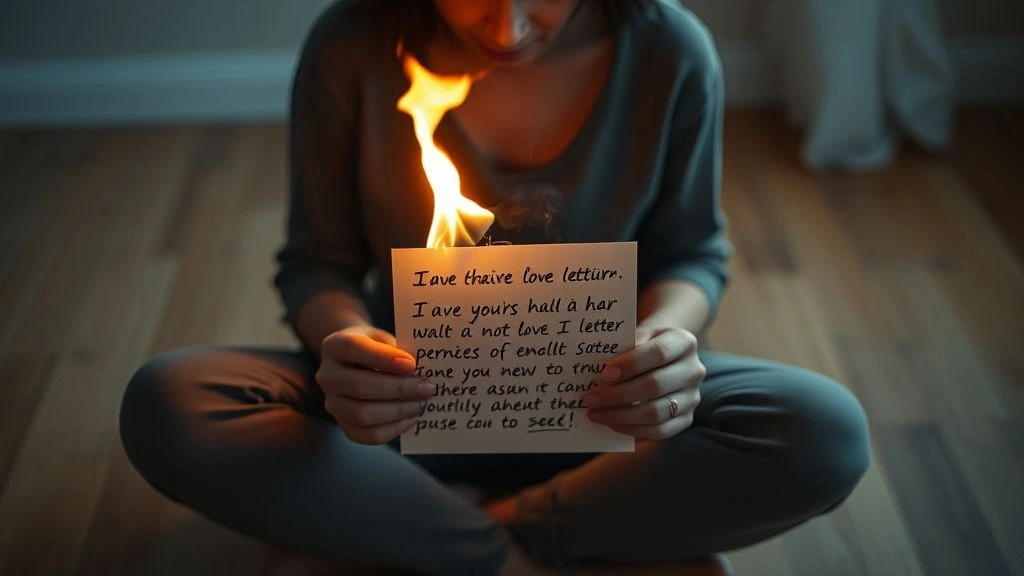
The Robbery of Your Heart
You’re staring at your phone. It’s 2 a.m. The screen is a black mirror, daring you to text them. Your chest is a fist, clenched around a memory. You’re not just sad—you’re unraveling. This isn’t a breakup. It’s a robbery. They took your future, your rhythm, your air. And the worst part? Your brain is screaming that they’re the only ones who can give it back. This is heartbreak. It’s not poetic. It’s physiological. And it’s why you feel like you’re withdrawing from a drug—because, chemically, you are. Your Brain Is Detoxing From Love
After a Breakup: Your Brain on Love
Love isn’t just a feeling; it’s a neurochemical cocktail. When you were with them, your brain was swimming in dopamine and oxytocin—hits of joy and safety that wired you to their presence. A 2011 study in PNAS found that romantic rejection lights up the same brain regions as physical pain. Your body doesn’t know the difference between a breakup and a broken arm. It just knows it hurts.
After a Breakup: Breaking the Addiction
Right now, your reward system is starving. That’s why you’re refreshing their profile, replaying their last words, chasing a ghost for one more hit. It’s not weakness—it’s biology. Your brain is an addict, and they were your supply. What to do after a breakup: Stop feeding the craving. Delete their texts. Unfollow. Not to punish them, but to protect you. Every glimpse of their life is a microdose of the drug you’re trying to quit.

Why You Can’t Stop Thinking About Your Ex after a Breakup
Your mind is a hamster wheel, spinning their name. Every song, every street corner, every stray sock under the couch—it’s all a trigger. This isn’t you being “crazy.” It’s your brain’s survival mode kicking in.
Why Your Brain Won’t Stop Obsessing
Psychologists call this intrusive thinking. A 2015 study in Psychological Science showed that after a breakup, your prefrontal cortex—the part that makes rational decisions—takes a nap. Meanwhile, your amygdala, the emotional alarm system, is wide awake, screaming, “Danger! Fix this!” That’s why you’re drafting novels in your Notes app at 3 a.m., analyzing their last “k” like it’s a cipher.
After a Breakup: Reclaim Control Over Your Thoughts
Here’s the street-level truth: You’re not obsessed with them. You’re obsessed with the story of us. Your brain is trying to rewrite the ending, because it doesn’t know how to live without it. Hack the loop: Write the thoughts down. All of them. The ugly, the petty, the desperate. Then burn the paper. Or delete the doc. The act of externalizing steals their power. It’s not closure—it’s control.

Your Body Is Grieving a Phantom Limb
Ever wake up with a racing heart, like you’re running from something you can’t see? That’s your nervous system in overdrive. Heartbreak isn’t just in your head—it’s in your bones. Your cortisol levels are spiking, your immune system is sluggish, and your sleep is a war zone. A 2018 Journal of Social and Personal Relationships study linked breakups to physical symptoms like nausea and fatigue. Your body is mourning a person who’s still alive.
After a Breakup: The First Week Feels Like Cement
This is why the first week after a breakup feels like walking through wet cement. You’re not just sad—you’re sick. Your attachment system, the one that bonded you to them, is glitching. It’s searching for a signal that’s gone.
Move Your Body, Reboot Your Biochemistry
Biochemical reboot: Move your body. Not to “get hot” or “show them what they’re missing.” Move to remind your nervous system you’re still here. A 10-minute walk. A yoga flow. A dance to the angriest song on your playlist. Motion shakes loose the grief stuck in your muscles. The Addiction of “What If”
Grieving the “Version of You”
You’re not just grieving them. You’re grieving the version of you that existed with them. The inside jokes. The way they looked at you across a crowded room. The future you built in your head—lazy Sundays, road trips, maybe a dog. That’s the real withdrawal: the loss of possibility.
Hooked on “What If”
Attachment theory explains this. If you’re wired for anxious attachment, your brain is a detective, scouring for clues they might come back. If you’re avoidant, you’re fighting the urge to shut down completely. Either way, you’re hooked on “what if.” What if they text? What if they’re with someone else? What if you’d fought harder?
Ground Yourself in the Present
Break the cycle: Ground yourself in the now. Touch something real—a mug, a blanket, your own skin. Name three things you see. Two things you hear. One thing you feel. This isn’t woo-woo. It’s a circuit breaker for your spiraling brain, backed by mindfulness research from Nature Reviews Neuroscience (2015).

Real-World Recovery: The First Steps
You don’t need to “get over” them. You need to get through this hour. Then the next. Here’s how: Eat something, anything: Your body is in shock. A banana, a cracker, a sip of soup. Small wins tell your brain you’re still worth taking care of. Talk to someone who gets it: Not the friend who says, “You’re better off.” Call the one who’ll let you cry without fixing you. Connection rewires your oxytocin flow.
Distract with intention:
Not mindless scrolling. Watch a movie that makes you laugh or sob. Read a book that swallows you whole. Your brain needs a new story to chew on. Sleep is your superpower: Your REM cycle is rebuilding your emotional resilience, per a 2019 Sleep journal study. Can’t sleep? Try a weighted blanket or white noise. It’s not perfect, but it’s progress. The Truth About Healing after a breakup.
This pain isn’t a punishment. It’s proof you loved. Hard. Messy. Real. And that capacity—it’s still yours. Right now, your heart is a bruise, but it’s not broken. It’s learning how to beat again, on its own. You won’t wake up tomorrow and be “fine.” But you’ll wake up. And each day, the ache will loosen its grip. Not because you’re “moving on,” but because you’re moving through. You’re not just surviving this breakup. You’re rewriting your brain, your body, your story.
One breath at a time.
This is your power: You’re still here. And that’s enough.
Disclaimer: This post is for informational and emotional support purposes only. Every relationship is unique, and this is not professional legal, medical, or mental health advice. Read our full disclaimer.
Affiliate Disclosure: Some links in this post may be affiliate links. If you make a purchase through them, I may earn a small commission at no extra cost to you. Learn more here.